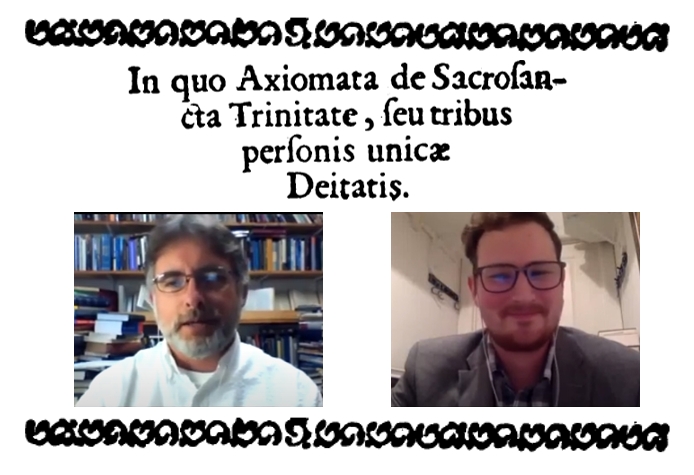
One of the things you can say about the divine persons is that they are equal with each other. Right between affirming their consubstantiality and their mutual indwelling, Polanus devotes a couple of paragraphs to affirming their equality. “The three persons are equal among themselves in the essential properties of deity, in the act of subsisting, in their works, and in their dignity and honor.”
A couple of interesting things emerge from Polanus’ treatment of this Trinitarian equality. First, as he talks about their “equality in the essential properties of deity,” he takes up the Reformed emphasis on the Son and Spirit being autotheos. The affirmation that the Son is autotheos (“God in himself” is maybe the least bad way to say it in English) was always a way of defending the full divinity of the Son, or we might say (depending on which autotheos author we’re considering) a way of ensuring that the personal relation of origin doesn’t detract from the essential deity of the Son. Another way we might translate “autotheos” is “absolutely God,” taking “absolute” as the opposite of “related” –and that’s the point of the self-referentiality of the “auto” prefix. In the course of his discussion, Polanus puts autotheos in a list of other compound words formed by putting the Greek prefix “auto-” in front of a divine attribute: the Son is not only autotheos, but also autozoe and autoikaiosyne. That is, being personally in a relation of eternal generation from the Father does not cancel out the fact that he has the divine nature, with its deity, life, and righteousness. The divine nature is autotheos, and any person who is the divine nature is autotheos. (For more fun with the theological use of auto-compounds, check out this post.) The result of this discussion is that the Reformed emphasis on autotheos finds itself at home in more obviously patristic modes of thought. If you told Polanus that he needed to choose between Nicene and Reformed trinitarianism, I suppose he would stare at you in blank incomprehension and wonder how you got so confused.
Second, Polanus calls into play the principles of the Athansaian Creed, falling directly into the cadences of that ancient Christian statement. As creeds go, the Athanasian is the most repetitive, because it doesn’t just state its truth at a general level; it picks out a few divine attributes and runs each of them through the same logic: the Father is X, the Son is X, and the Holy Spirit is X; but there are not three Xs, but one X. And so on. Polanus does the same, in service of affirming the equality of the persons.
Here is Ryan Hurd’s translation of this section:
The ισοτης of divine persons is that whereby the three persons are equal among themselves in the essential properties of deity, in the act of subsisting, in their works, and in their dignity and honor. Anything said substantially of God is attributed equally of the individual persons. For they are equal in wisdom, goodness, power, glory, and majesty. For this reason, the Son and Holy Spirit are just as αυτοθεος as the Father, as was said just now and above, and just as αυτοζωη, αυτοδικαιοσυνη, etc. They are equal in the act of subsisting which belongs to the person in himself. And by that act each person exists in himself, because he subsists in himself and through himself. They equally create and conserve all things; equally justify and regenerate and give the elect salvation and eternal life; and we owe equal worship and adoration to them.
We should attribute the names that signify essential properties or operations equally to each person of the deity distinctly in the singular number, and to the persons conjoined also in the plural number. But this is to be without mention of the persons ever in the plural number, but only in the singular, because God is single, a single divine essence not many divine essences. So even though the Father is infinite, eternal, wise, good, omnipotent, creating and governing all; and the Son is likewise infinite, eternal, wise, good, omnipotent, creating and governing all; and as also for the Holy Spirit equally; and on account of all this there are three infinite, eternal, wise, good, omnipotent persons creating and governing all—still, despite all this, there are not three infinites, eternals, wisdoms, goods, omnipotences, creators and governors of all. Rather, there is a single infinite, eternal, wise, good, omnipotent creator and governor of all.
And here is our conversation: